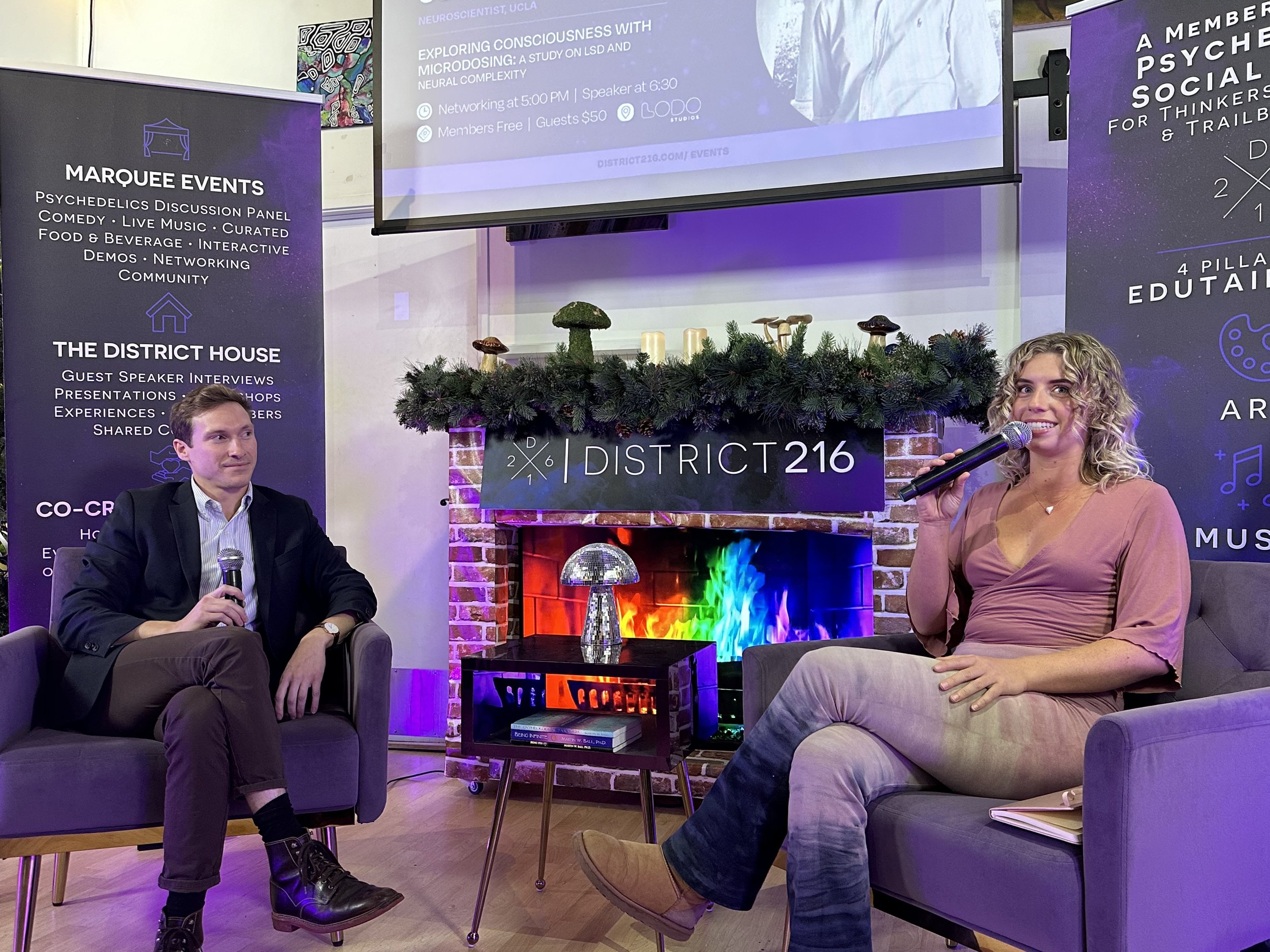Unveiling the Mysteries of Microdosing: A Dive into the Neuroscience of LSD with Dr. Conor Murray
District216 recently had the privilege of hosting an enlightening interview and presentation by Dr. Conor Murray, a distinguished neuroscientist specializing in psychedelics and altered states of consciousness at the University of California, Los Angeles (UCLA). In a captivating conversation with our interviewer, Hannah Jo, Dr. Murray delved into the intriguing realm of his research, particularly focusing on his groundbreaking study on microdosing LSD.
Presentation Topic: "Exploring Consciousness with Microdosing: A Study on LSD and Neural Complexity"
Dr. Conor Murray is at the forefront of cutting-edge research at UCLA, where he explores the profound effects of psychedelics on the human brain. His expertise extends from maladaptive synaptic plasticity underlying substance cravings to the neuroscience of very low, or microdoses, of psychedelic compounds. Dr. Murray's published work includes groundbreaking studies conducted with Harriet de Wit at the University of Chicago, shedding light on the powerful yet subtle impact of microdoses, particularly LSD, on the brain.
Dr. Murray's study focused on testing three different doses of LSD – a placebo, 13 μg, and 26 μg – to understand how individuals responded in various ways. The results were nothing short of fascinating. Even at very low doses, indistinguishable from a placebo, LSD was found to induce a blissful state, particularly at the 26 μg dose. These low doses not only modulated brain responses in tasks but also influenced resting state oscillations, reducing the power of resting-state oscillations.
One of the significant outcomes of the study was the observation of Limpel-Ziv Complexity at rest, indicating that even microdoses of LSD could replicate effects associated with higher doses used in psychedelic-assisted therapy.
Dr. Murray delved into the concept of the Entropic Brain and the neuroscience of psychedelics, emphasizing that neural entropy (neural complexity) serves as a neural correlate of consciousness. Positive mood enhancement after a 13 μg LSD dose was correlated with amygdala-frontal cortex connectivity, providing insight into the feeling of having things under control.
The study drew several noteworthy conclusions, including the potential therapeutic effects of very low doses of LSD, often indistinguishable from a placebo. Dr. Murray suggested that these effects may be unique to psychedelics, acting as a sweet spot that enhances brain responses where higher doses cannot.
Looking ahead, Dr. Murray highlighted the need for future work to characterize the roles of alpha desynchronization for consciousness and cognition. Understanding the clinical, behavioral, and cognitive relevance of greater complexity after low-dose LSD is an exciting avenue for future research.
Dr. Conor Murray's presentation provided District216 with a fascinating glimpse into the world of microdosing and its profound effects on consciousness. As the boundaries of neuroscience continue to expand, Dr. Murray's work stands as a testament to the endless possibilities that psychedelics hold in unlocking the mysteries of the human mind.






